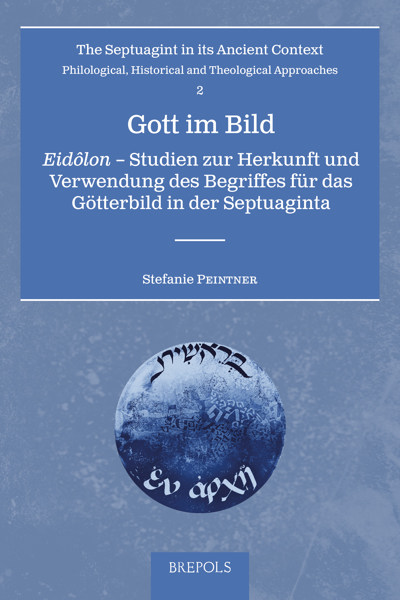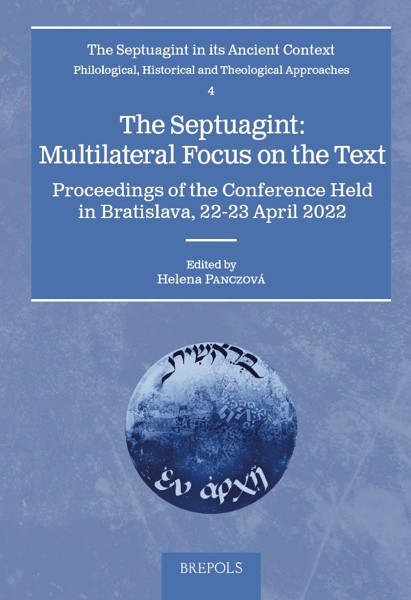
The Egyptian Background of the Septuagint
Lexical Items in Genesis, Exodus and Leviticus
Camilla Recalcati
- Pages: 263 p.
- Size:156 x 234 mm
- Illustrations:6 tables b/w.
- Language(s):English, Greek, Hebrew
- Publication Year:2026
- € 80,00 EXCL. VAT RETAIL PRICE
- ISBN: 978-2-503-61800-5
- Paperback
- Forthcoming (Mar/26)
- € 80,00 EXCL. VAT RETAIL PRICE
- ISBN: 978-2-503-61801-2
- E-book
- Forthcoming
*How to pre-order?
A first systematic study of the Egyptian influences on the vocabulary of the Septuagint of Genesis, Exodus, and Leviticus
Camilla Recalcati (Milan, Italy, 1995) studied Classics at the Catholic University of Milan. She earned her PhD in May 2024 from the Faculty of Theology and Religious Studies at the Université Catholique de Louvain, Belgium. She is currently a Golda Meir Postdoctoral Fellow at the Hebrew University of Jerusalem and a postdoctoral researcher at Bar-Ilan University. Her research interests include the Septuagint, Greek lexicography, and Hellenistic Judaism in Egypt.
It is generally accepted that the Greek translation of the Pentateuch was undertaken in Egypt, in the 3rd century BCE. Then, it is only logical that the translators and the translation itself were influenced by the environment the translation took place in, by its languages, its usages and beliefs. Nevertheless, previous scholarly endeavours only partially address the issue of these contextual influences on the Greek translation. Although some valid attemps to uncover echoes of the Egyptian environment in the Septuagint translation have been made in the past century, no systematic study had been produced. In the wake of a renewed interest for Egyptian features in the Septuagint translation, the present volume aims at offering the first systematic studies on Egyptian influences in the first three books of the Pentateuch: Genesis, Exodus, and Leviticus. An accurate analysis of various translational choices reflected in lexical elements which have been influenced by the Egyptian milieu such as proper names, toponyms, geographical images, job titles, weights and measures, animal names, realia, and theological accents demonstrate to what extent the translators were acquainted with the environment they lived in. Examining this phenomenon, which might initially appear marginal, reveals itself to be a pressing issue in the emerging trends of Septuagint studies.
Preface
List of Abbreviations
Part I. Introduction and Methodological Considerations
Introduction
1. Translation Technique Studies
2. LXX Lexicography
3. How to Define Egyptian Influences on the Vocabulary of the Septuagint
Part II. The Egyptian Background of the Septuagint. Lexical Items of Genesis, Exodus and Leviticus
4. Proper Names
5. Toponyms
6. Geographical References and Natural Imagery
7. Occupational Terms and Hellenistic Job Titles
8. Weights and Measures
9. Identifying and Naming Kosher and Unkosher Animals
10. Realia
11. Theological Accents in Translation?
12. General Conclusions and Future Avenues
Bibliography
Index of Ancient Sources




